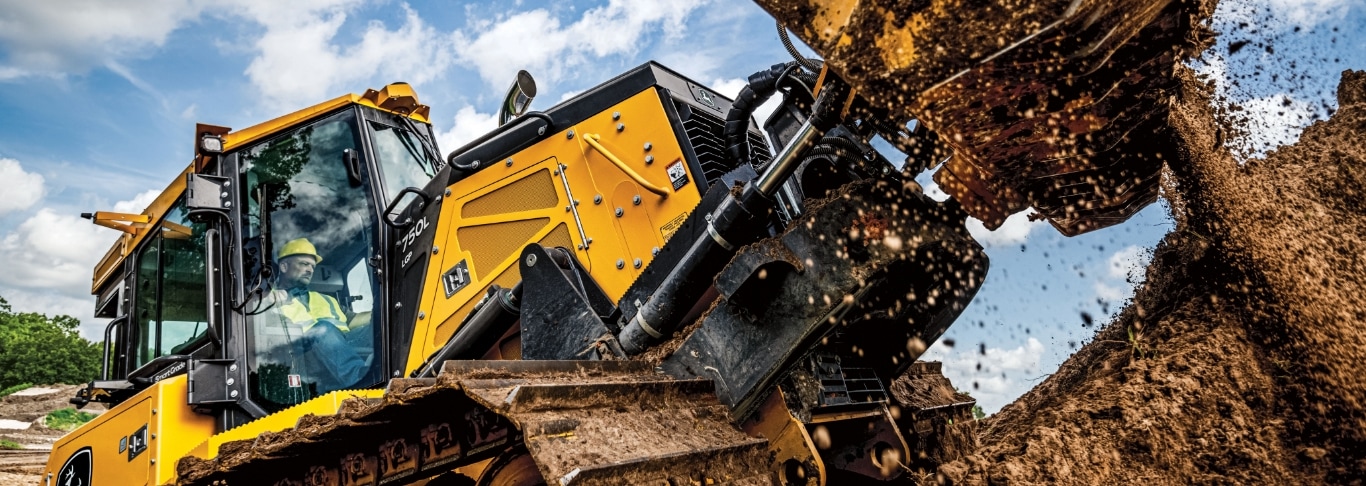Mini Excavator Rental in Tuscaloosa AL: Compact and Powerful Equipment for Tiny Jobs
Mini Excavator Rental in Tuscaloosa AL: Compact and Powerful Equipment for Tiny Jobs
Blog Article
Exploring the Financial Conveniences of Renting Building Tools Contrasted to Possessing It Long-Term
The choice in between owning and renting out building equipment is pivotal for monetary administration in the market. Renting out offers prompt cost financial savings and functional versatility, allowing business to allot sources a lot more effectively. In contrast, possession comes with considerable long-term financial commitments, consisting of upkeep and depreciation. As specialists weigh these options, the effect on capital, project timelines, and modern technology accessibility becomes increasingly considerable. Comprehending these subtleties is crucial, especially when considering just how they straighten with certain task needs and economic approaches. What variables should be prioritized to make certain ideal decision-making in this facility landscape?

Price Comparison: Renting Vs. Possessing
When assessing the economic implications of renting versus having building and construction devices, a thorough cost contrast is vital for making notified choices. The option in between renting and having can considerably influence a firm's lower line, and comprehending the linked costs is critical.
Leasing construction tools commonly includes reduced upfront costs, enabling organizations to allot resources to various other operational requirements. Rental agreements typically include flexible terms, allowing firms to gain access to advanced equipment without lasting commitments. This adaptability can be especially useful for temporary projects or changing workloads. Nonetheless, rental prices can build up in time, possibly surpassing the cost of ownership if devices is needed for an extended period.
Alternatively, possessing construction tools requires a considerable preliminary investment, along with ongoing prices such as insurance policy, funding, and devaluation. While ownership can lead to lasting financial savings, it also binds capital and might not give the exact same degree of flexibility as renting. Furthermore, having equipment requires a commitment to its utilization, which might not constantly line up with project needs.
Inevitably, the choice to possess or rent out must be based on a thorough analysis of certain job demands, monetary capability, and lasting critical goals.

Upkeep Responsibilities and expenditures
The choice in between possessing and renting construction tools not only includes monetary considerations but likewise encompasses ongoing upkeep costs and responsibilities. Owning devices needs a substantial commitment to its maintenance, which consists of routine evaluations, repair services, and prospective upgrades. These duties can promptly accumulate, leading to unforeseen costs that can strain a budget plan.
On the other hand, when leasing tools, maintenance is commonly the duty of the rental business. This arrangement enables service providers to avoid the economic concern connected with deterioration, as well as the logistical obstacles of organizing repair work. Rental contracts commonly consist of arrangements for upkeep, indicating that professionals can concentrate on completing tasks instead of stressing over tools problem.
Furthermore, the diverse variety of tools readily available for rent allows firms to pick the current versions with advanced innovation, which can improve efficiency and performance - scissor lift rental in Tuscaloosa Al. By selecting leasings, organizations can stay clear of the long-term obligation of equipment devaluation and the connected upkeep frustrations. Eventually, reviewing upkeep expenses and responsibilities is essential for making an informed decision regarding whether to own or lease construction tools, dramatically affecting general job prices and operational performance

Depreciation Influence On Possession

A significant aspect to take into consideration in the choice to possess construction devices is the influence of devaluation on total ownership expenses. Devaluation represents the decline in value of the devices gradually, influenced by factors such as usage, deterioration, and advancements in technology. As devices ages, its market worth lessens, which can considerably impact the proprietor's economic setting when it comes time to trade the devices or offer.
For building companies, this depreciation can convert to considerable losses if the tools is not made use of to its max potential or if it lapses. Owners have to represent depreciation in their financial projections, which can cause higher general prices compared to renting out. Additionally, the tax implications of depreciation can be complicated; while it may give some tax advantages, these are frequently countered by the truth of lowered resale worth.
Inevitably, the concern of depreciation highlights the importance of comprehending the long-term economic commitment involved in having construction equipment. Business should meticulously assess exactly how typically they will utilize the tools and the prospective monetary influence of depreciation to make an informed choice regarding possession versus renting out.
Economic Adaptability of Renting Out
Renting building tools supplies significant economic flexibility, enabling companies to allot sources much more efficiently. This flexibility is particularly vital in a market defined by changing job demands and varying work. By opting to rent out, companies can avoid the significant resources outlay required for purchasing equipment, maintaining capital for various other operational requirements.
Additionally, renting tools allows companies to customize their tools choices to certain task demands without the lasting dedication associated with possession. This means that services can conveniently scale their equipment stock up or down based on existing and anticipated job demands. As a result, this versatility reduces the risk of over-investment in machinery that might come to be underutilized or obsolete with time.
Another economic benefit of renting out is the capacity for tax obligation benefits. Rental settlements are usually thought about business expenses, enabling prompt tax obligation reductions, unlike depreciation on owned and operated equipment, which is topped a number of years. scissor lift rental in Tuscaloosa Al. This immediate expenditure recognition can even more enhance a company's cash money position
Long-Term Job Factors To Consider
When evaluating the long-term demands of a construction organization, the decision between renting out and owning tools ends up being a lot more intricate. Secret elements to consider consist of job period, regularity of use, and the nature of upcoming tasks. For jobs with extended timelines, acquiring equipment may seem useful due to the possibility for reduced More Help total costs. However, if the tools will not be used continually across tasks, having may bring about underutilization and unneeded expense on upkeep, storage, and insurance policy.
The construction market is advancing rapidly, with new equipment offering enhanced effectiveness and safety attributes. This flexibility is particularly useful for services that take care of varied projects requiring various kinds of devices.
Moreover, monetary stability plays a vital role. Having devices usually requires significant capital expense and devaluation problems, while renting out permits even more foreseeable budgeting and capital. Ultimately, the selection in between possessing and renting must be lined up with the critical objectives of the building business, taking into consideration both awaited and present task demands.
Final Thought
In conclusion, leasing construction tools provides considerable economic benefits over long-term possession. Eventually, the decision to rent rather than own aligns with the vibrant nature of construction projects, enabling for versatility and accessibility to the most recent equipment without the monetary worries connected with ownership.
As devices ages, its market worth lessens, which can significantly influence the proprietor's economic placement when it comes time to sell or trade the equipment.
Renting building and construction devices uses considerable financial flexibility, permitting business web link to designate resources a lot more efficiently.Furthermore, renting equipment allows business to customize their tools options to particular job needs without the long-term commitment connected with possession.In conclusion, renting construction tools uses significant monetary advantages over long-term possession. Inevitably, the decision to rent rather than very own aligns with the dynamic nature of building and construction projects, permitting for versatility and accessibility to the newest tools without the economic worries try this web-site linked with possession.
Report this page